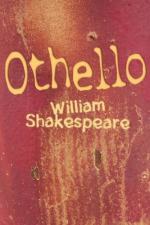|
This section contains 8,380 words (approx. 28 pages at 300 words per page) |

|
SOURCE: “‘Mulattos,’ ‘Blacks,’ and ‘Indian Moors’: Othello and Early Modern Constructions of Human Difference,” in Shakespeare Quarterly, Vol. 49, No. 4, Winter, 1998, pp. 361-74.
In the following essay, Neill discusses the contradictory significance of race in Othello.
“I think this play is racist, and I think it is not”:1 Virginia Vaughan's perplexed response to Othello is symptomatic of the problems faced by late-twentieth-century critics in approaching the racial dimensions of Shakespeare's play. For if the work of recent scholars has taught us anything about early modern constructions of human difference, it is that any attempt to read back into the early modern period an idea of “race” based on post-Enlightenment taxonomy is doomed to failure.2 To talk about race in Othello is to fall into anachronism; yet not to talk about it is to ignore something fundamental about a play that has rightly come to be identified as a foundational...
|
This section contains 8,380 words (approx. 28 pages at 300 words per page) |

|


